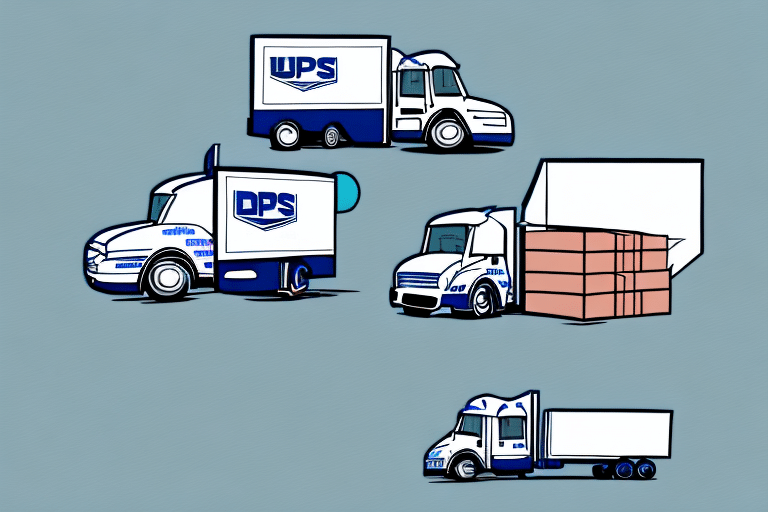Is UPS Faster Than USPS? A Comprehensive Comparison of Delivery Times
Choosing between UPS and USPS for your shipping needs can be challenging. One of the most critical factors businesses and individuals consider is delivery time. Understanding which carrier offers faster and more reliable delivery can significantly impact meeting deadlines and ensuring customer satisfaction. This article provides an in-depth comparison of UPS and USPS delivery times to help you make an informed decision.
Introduction: The Importance of Delivery Time
Delivery time plays a pivotal role in the shipping industry, influencing customer satisfaction and business operations. Reliable and timely deliveries can enhance customer trust, while delays can lead to dissatisfaction and lost sales. Factors such as distance, shipping methods, and carrier handling significantly impact delivery times.
According to the UPS Service Level Guide, UPS provides various delivery options tailored to different needs, emphasizing the importance of choosing the right service for timely deliveries.
Comparing UPS and USPS: Delivery Speed, Reliability, and Costs
The Pros and Cons of Using UPS
UPS is renowned for its fast and reliable shipping services, making it a preferred choice for businesses requiring prompt and secure deliveries. Here are some advantages and disadvantages of using UPS:
- Pros:
- Wide range of services including overnight and two-day shipping.
- Advanced tracking systems with real-time updates.
- Eco-friendly packaging options.
- High reliability and consistent delivery times.
- Cons:
- Higher cost compared to other carriers.
- Additional fees for large or heavy packages.
- Delivery times may not always be guaranteed due to unforeseen circumstances.
The Pros and Cons of Using USPS
USPS offers affordable and reliable shipping options, making it an attractive choice for both individuals and businesses. However, it comes with its own set of advantages and drawbacks:
- Pros:
- Cost-effective, especially for smaller and heavier packages through flat-rate options.
- Free shipping supplies such as boxes and envelopes.
- Extensive national coverage, including rural areas.
- Cons:
- Variable delivery times depending on location and distance.
- Limited tracking information compared to UPS.
- Potential delays during peak seasons like holidays.
- Less cost-effective for international shipping.
Key Factors Influencing Delivery Times
Distance and Location
The distance between the sender and the recipient significantly affects delivery times. Domestic shipments typically arrive faster than international ones. Additionally, packages sent to urban areas are usually delivered quicker than those sent to rural or remote locations.
Shipping Methods
Both UPS and USPS offer a variety of shipping methods tailored to different needs. Choosing the right shipping method—such as overnight, two-day, or ground shipping—can help ensure timely deliveries.
Seasonal Variations
During peak seasons like Christmas or Black Friday, shipping carriers experience higher volumes, which can lead to delays. Planning ahead and allowing extra time for deliveries during these periods can help mitigate potential delays.
Delivery Time Calculations and Tracking Features
Both UPS and USPS use sophisticated systems to estimate delivery times, considering factors like distance, shipping method, and carrier logistics. UPS offers time-definite delivery services that guarantee delivery at a specific time, enhancing reliability for urgent shipments.
Tracking capabilities are essential for monitoring shipments. UPS provides detailed tracking with real-time updates, allowing customers to track their packages at every stage. USPS also offers tracking, but it may be less comprehensive, especially for certain shipping options.
According to a 2023 shipping trends report, advanced tracking systems are becoming increasingly important for customer satisfaction, with 68% of consumers valuing real-time tracking information.
Cost vs. Speed: Evaluating Shipping Expenses alongside Delivery Times
Balancing cost and speed is crucial when selecting a shipping carrier. While UPS generally offers faster delivery times, it comes at a higher cost compared to USPS. Businesses and individuals must assess their priorities—whether speed or cost-efficiency is more important for their specific needs.
- UPS: Ideal for time-sensitive shipments where speed and reliability are paramount.
- USPS: Suitable for budget-conscious shipments that are less time-sensitive.
A study by the National Retail Federation indicates that 74% of businesses consider shipping costs as a significant factor in their carrier selection process.
International Shipping: Which Carrier Stands Out?
International shipping introduces additional complexities such as customs regulations, varying delivery times, and differing levels of tracking and insurance.
- UPS: Offers faster international delivery options with comprehensive tracking and insurance. UPS's global network facilitates smoother cross-border shipments.
- USPS: More affordable for smaller international shipments but may have longer delivery times and less extensive tracking.
According to the export.gov guidelines, UPS is often preferred for high-priority international shipments due to its efficiency and reliability.
Customer Satisfaction: How Delivery Impacts Perception
Delivery performance directly influences customer satisfaction. Timely and reliable deliveries enhance the customer experience, while delays and inaccuracies can lead to dissatisfaction.
Research by Customer Contact Week shows that 75% of consumers expect delivery within two days, highlighting the importance of speedy shipping options.
UPS's commitment to on-time deliveries and superior tracking contributes to higher customer satisfaction rates. USPS, while more affordable, may experience fluctuations in delivery performance during peak times, potentially impacting customer perceptions.
Conclusion: Choosing the Right Carrier for Your Shipping Needs
When deciding between UPS and USPS, consider factors such as delivery speed, cost, reliability, and the nature of your shipments.
- Choose UPS if:
- You require fast and reliable delivery, especially for time-sensitive or high-value shipments.
- Comprehensive tracking and insurance are important for your shipments.
- International shipping with a need for speed and reliability is a priority.
- Choose USPS if:
- You are looking for cost-effective shipping options, particularly for smaller or lighter packages.
- You need extensive domestic coverage, including rural areas.
- International shipping costs need to be minimized for small parcels.
Ultimately, the best carrier for your needs will depend on your specific priorities and shipping requirements. Evaluating the trade-offs between cost and speed, along with considering delivery reliability and customer service, will guide you in making the most suitable choice for your shipping activities.






















